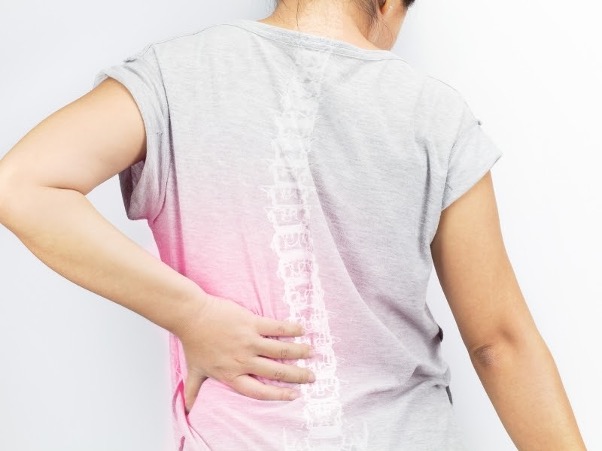
Geriatric Bone Health - Tips for a healthy dotage
Our bones are the supporting structures that protect our delicate organs from injuries. Bones are primarily made of collagen and are a living and growing tissue. They allow us to move, anchor our muscles and most importantly- store calcium. This amalgamation of calcium and collagen allows the bones to be strong and provides flexibility. In this blog, we have enumerated the reasons why bone health matters and how to maintain bone’s health, especially for older adults.
Why is bone health important?
Healthy bones give you the strength to perform your day to day activities. They allow you to function with fewer aches and pains- enabling you to function well even as you get older. As mentioned earlier, our bones are a living and growing tissue which means that throughout our lives, they undergo a process where old bone is replaced by new bone. A remodelling process takes place where cells called osteoclasts breakdown the bone and cells called osteoblasts build new bone. A calcium homeostasis is maintained through this process which shapes your skeleton during growth and repairs any damages that may be caused due to daily stress.
However, this process changes as from the age of 18 to your early 20’s, you have reached the peak bone mass that you will ever achieve in your lifetime. The bone mass is the highest density of bone that can be attained. This is dependent on a wide gamut of factors such as nutrition intake, genetics, hormones and physical activity. Bones are growing and constantly changing until the age of 30 when the new bone tissue formation is outpaced by old bone tissue removal. As you move towards your 40’s, a natural process of ageing is that your bones eventually lose density.
Osteoporosis is a condition that causes bones to become weak and brittle. It is a disease in which the body loses bone or does not make enough bone to replenish the loss. Osteoporosis means “porous bones” and as a result the bones have lost density and have abnormal tissue structure becoming more likely to break and fracture. This can cause a rather serious bone break especially in older people occurring in the hip, spine or wrist. The result may be permanent pain and can even cause people to lose height. When osteoporosis affects the bones of the spine it may also lead to a hump- a hunched posture.
It can curb mobility in seniors and can even be expensive to treat as you cannot feel your bones weakening and are likely to find out about the condition much later. Women are more likely to suffer from osteoporosis and have a higher chance of suffering from osteopenia- the precursor to osteoporosis. As compared to men, women have smaller and thinner bones which makes them more susceptible to osteoporosis. The hormone Estrogen that protects women decreases when they reach menopause resulting in bone loss.
In order to improve and optimize your bone development, decrease the chances of osteoporosis and to curtail bone breakdown, it is crucial to keep the following in mind.
Tips to maintain healthy bones
1. A balanced diet is key in preventing osteoporosis. A diet abundant in Calcium and Vitamin C will help in strengthening your bones. Sources of calcium include milk, yogurt and cheese. Some non-dairy sources of calcium are fortified soy, nuts, seeds, green leafy vegetables such as kale, broccoli, beans and legumes. The inclusion of green and yellow vegetables in your diet has also been shown to help since they are rich in Vitamin C.
2. Vitamin D can help in absorption of calcium and it is imperative to include this in your diet. Some sources of vitamin D are fatty fish such as tune, egg yolks and cheese. Some foods that are fortified with Vitamin D are soy sauce, cereals and orange juice.
However, it is important to remember that some may require nutritional supplements in the case that you do not consume enough calcium and vitamin C and D in your diet.
3. A study has highlighted the importance of dietary protein in maintaining geriatric bone health. The research findings supported a significant positive relationship between protein consumption and bone mineral density. Sources of protein include fish, eggs, meat and poultry.
4. At the point of maximum stress, bones thicken when the right amount of force is exerted. Therefore, the importance of physical activity and strength- training exercises cannot be undermined. Engaging in weight bearing exercises can also result in stronger bones. When resistance is added to movement, it makes your muscles work harder and improves your bone strength too. Strength- training exercises are not limited to lifting weights. Using your own body weight to do a push-up for example or even using resistance bands can greatly help.
5. As with any other condition, it is best to avoid smoking and drinking excessively. Substance abuse is an extremely unhealthy habit and you may want to seek the help of a professional if you require.
6. Lastly and most importantly, it is in your best interest to consult your doctor as osteoporosis can be difficult to diagnose. As you grow older and for women who hit menopause, a bone mineral density test is often recommended. The test will aid you in gauging your bone density and rate of bone loss. Your doctor can prescribe medication at the right time, before it is too late.
Prevention is always better than cure and we recommend you to make use of the tips enlisted above to help improve your bone health.
